8 conclusions from the 2022 UCI World Championships Road Races
Beyond the bird attacks, Wollongong was an exceptional World Championships - here are our takeaways from the races
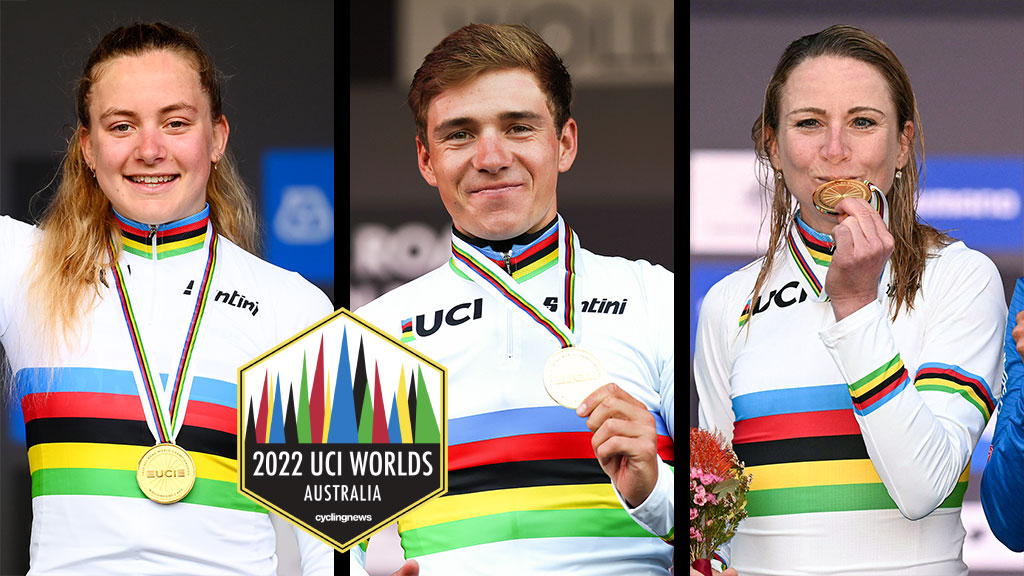
The UCI Road World Championships are over, and the streets of the Australian coastal city of Wollongong are returning to normal as the riders board their long flights to Europe - a lucky few adding a rainbow jersey to their luggage.
It was a course that delivered some nail-biting racing, some unexpected winners and some expected winners in unexpected ways. All in all 13 world titles were awarded over an intense eight days, with plenty of drama both on and off the road.
For some races, the rider on the top step was an all too familiar view, for others we saw unexpected wins and some rising stars who may well be just beginning their rainbow collection. We took a look at some of the key conclusions that could be drawn from the time trials earlier this week and now it’s time for the road races.
Belgium united behind year of triumph for Evenepoel
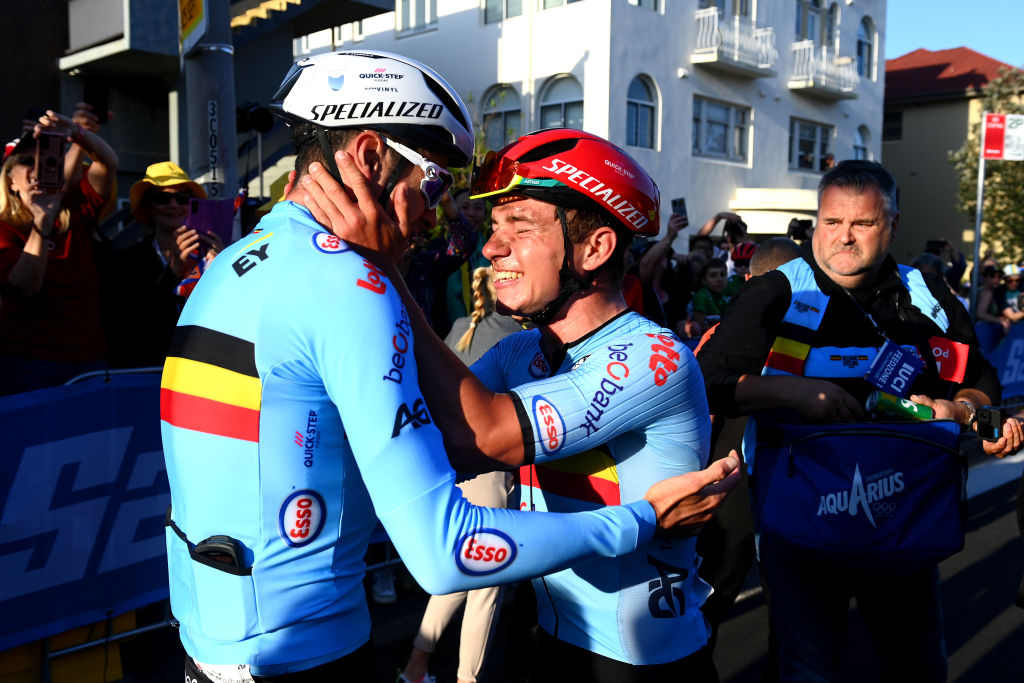
Last year's World Championship elite men's road race left the home nation Belgian fans heartbroken. They'd gone into the race with Wout van Aert as a favourite and turned out in droves hoping for a home town triumph, only to get an 11th from the team leader and suggestions from Remco Evenepoel that he had the legs to win, but not the position in the team. This year, however, with the 22-year-old leaving no room for questions about his ability to deliver the big wins, he came fresh from Vuelta a España victory and into a co-leadership role at Worlds.
The team was clearly putting a very public united front, with Evenepoel saying they wanted to "win it for Belgium" and Van Aert adding "our chances are bigger if we ride well together so it would be really dumb to not do it".
A stinging solo attack from Evenepoel at around 25km to go saw all of last year's frustrations melt away. Belgium may have been half a world away but the roar from the Belgians on course as a victorious Evenepoel road past may well have been heard there, such was its passionate force. Evenepoel had salved the sting of 2021 already by adding the red jersey of a Vuelta winner to his luggage as he travelled straight from Spanish victory to Australia. Now after adding a rainbow jersey to his luggage, he will make his triumphant return home with two of the most prestigious victories in the sport to celebrate, and perhaps many more on the horizon.
Pain, fracture and domestique duties no barrier
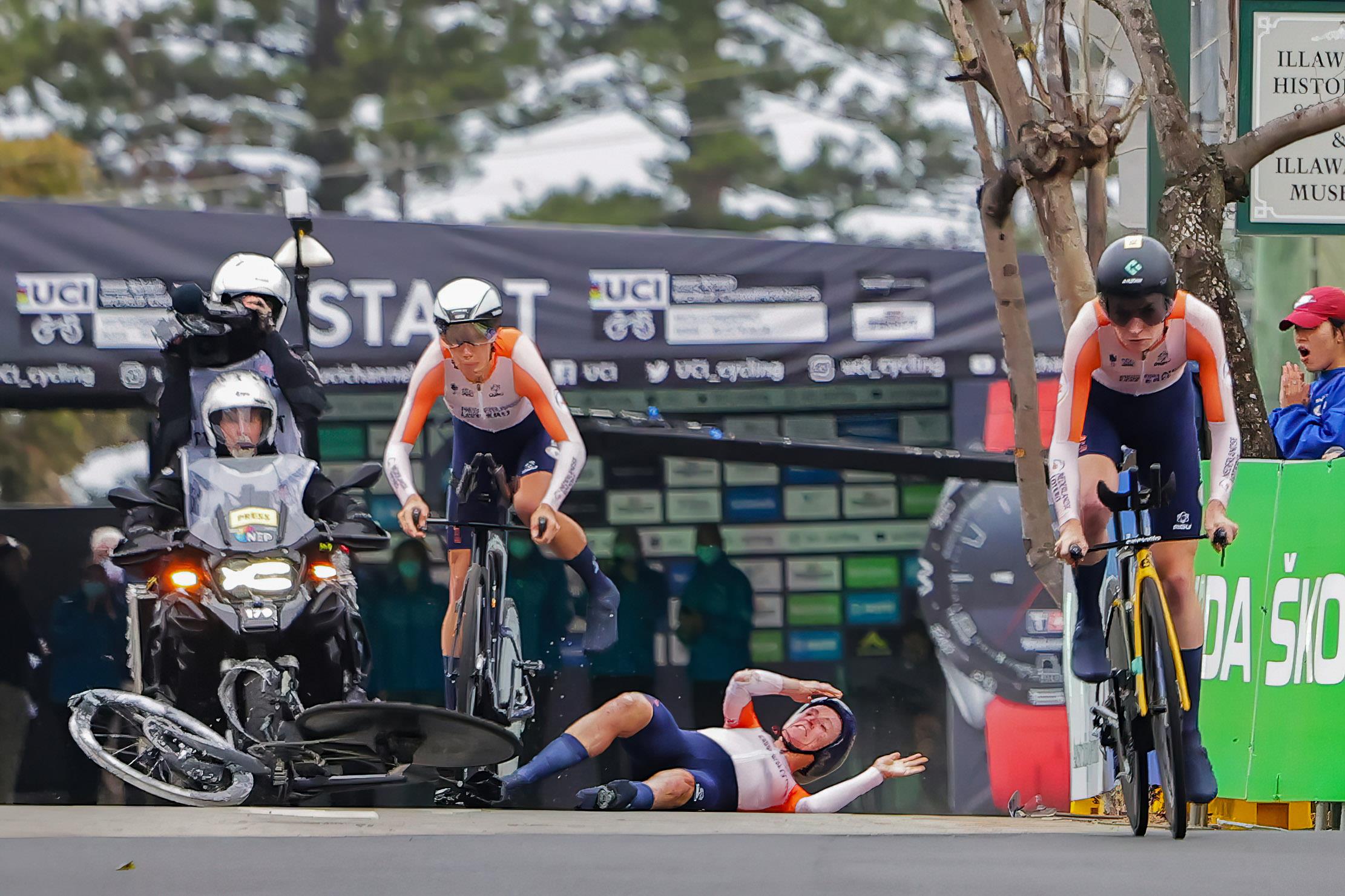
Dutch rider Annemiek van Vleuten may be at the opposite end of her career to Evenepoel, but equally, she has had a huge run of significant victories this season – the Ceratizit Challenge by La Vuelta, Tour de France Femmes, Giro Donne and Liège-Bastogne-Liège among – and while it wasn’t her first rainbow jersey, she labelled her best.
It seemed almost an impossibility when on Wednesday when Annemiek van Vleuten crashed heavily to the ground in the mixed team time trial, fracturing her elbow. She still lined up, bandaged and clearly in pain, and felt that while her aspirations toward victory were gone she could perhaps help her team to one anyway by supporting Marianne Vos. Those plans however didn’t work out and even after expending so much energy to try and help her compatriot, a whole other scenario played out.
Get The Leadout Newsletter
The latest race content, interviews, features, reviews and expert buying guides, direct to your inbox!
"It's incredible,” Marianne Vos, who has delivered many stunning rainbow victories of her own, told Cyclingnews after coming through the line. “With two laps to go, I was with Annemiek in the second group and she said 'OK, let me do the work, let's try and get back'. Then we came to the final climb up Mount Pleasant … and Annemiek kept the pace, but I just exploded on top and had to let the second group go.
“I was with Ellen van Dijk and she tried to wait for us, but she definitely did the right thing to sit in, and when the second group came back she made her move with 500 metres to go and it's just amazing what she did."
By rights, Van Vleuten shouldn’t have been able to hold off the closing riders behind on the long down-sloping run into the line. Even she was shocked it worked. But, with that move, she once again proved what a phenomenal athlete she is. Even injured, in pain and having worked toward the success of another, Van Vleuten is never ever a rider you should discount. As a constant reminder of that she’ll now be wearing the rainbow jersey through the last year of her stunning career.
Fisher-Black - A deserving winner that deserved so much more
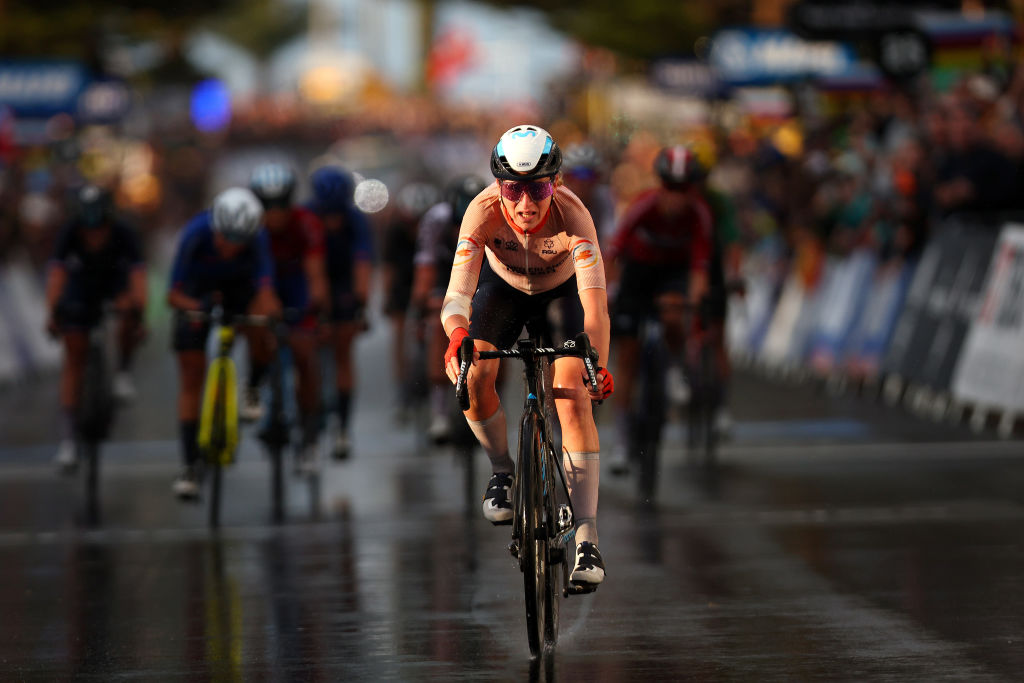
For the winner of the first-ever women’s U23 road race title, the 22-year-old from New Zealand Niamh Fisher-Black, the joy that came with wearing rainbows was clear. “Obviously nothing takes away from that I'm wearing a rainbow jersey right now,” said a beaming Fisher-Black at the post-race media conference.
But with the title being awarded to the first U23 rider over the line in the elite women’s race, so many of those moments that make it special, engage the spectators and build the excitement around the up-and-coming generation were missing. For a start, it was hard for the riders to even gain selection to vie for the world title, as there were no additional quotas for the women that raced the U23 category which left only around 30 able to even make it to the start line to take on the race within the race.
Then even when they could it was hard for them, let alone spectators, to tell where they were in the title battle given they were ensconced within the field where terms and numbers were being dictated by the elite. In fact, bronze medallist Ricarda Baurenfeind (Germany) came over the line not even realising she had won a medal.
Fisher-Black, as the only U23 rider that managed to work her way into the front group that came over the line behind elite winner Annemiek van Vleuten, knew what was at stake when she rolled over the line in 12th overall, but so many of those memorable moments of a world title victory were missing. There was no feeling of crossing the line first, hands in the air with the cheers of the crowd for the winner. There was no memorable shot of the moment that a rider became a world champion with hands in the air, instead just a place as an almost unidentifiable speck in black sitting to the left behind the elite winner, Annemiek van Vleuten. And the entry on the official results on the race site - 12th.
Fisher-Black was a deserving winner and while it was a positive step that at least she has those podium pictures and a rainbow jersey to show for her efforts, she deserved so much more.
Birds on patrol
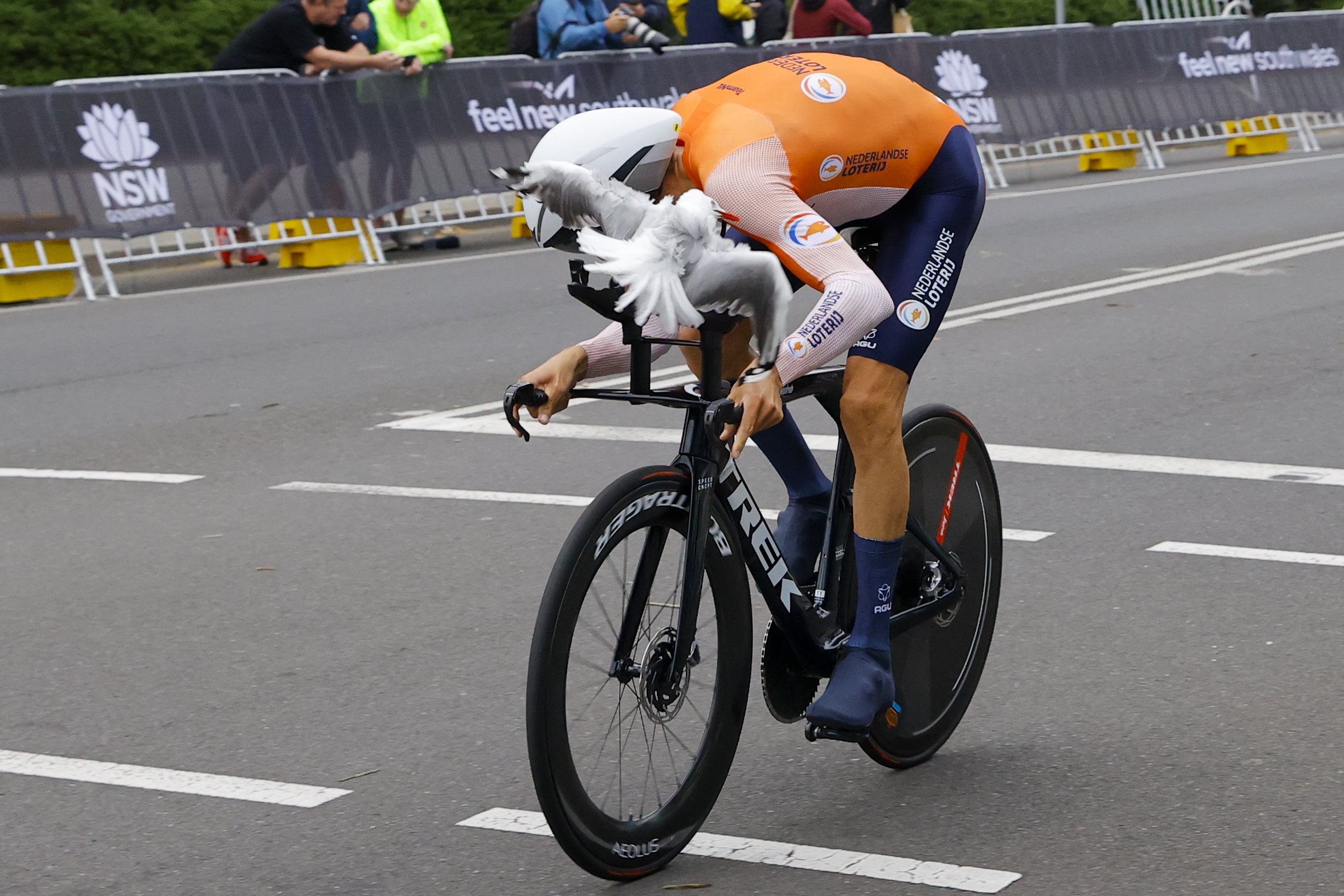
There was an all too familiar phenomena for Australian cyclists that quickly had visiting riders all in a flap. They hadn't expected to be dive-bombed from behind by over-protective parents, in the form of Australia's magpies. Every local cyclist knows that the woosh of flapping wings means a swoop is on its way, most often just above helmet height or a knock on the top of it – depending on how finely tuned your ducking skills are – and probably best not described as an attack but more as a not so friendly warning.
The birds go into overdrive every spring as they work hard to keep any threats away from the nest and somehow cyclists seem to look particularly threatening. They were a regular topic of conversation, social media posts and of course jokes. When Remco Evenepoel was asked about the biggest threat for the elite men's road race on Sunday he said with a laugh "the birds".
Birds, birds, birds: Bauke Mollema aangevallen door Australische ekster #Wollongong2022👇https://t.co/hQ2afX0dEg pic.twitter.com/1bgzn8JxnqSeptember 20, 2022
When will Backstedt go?
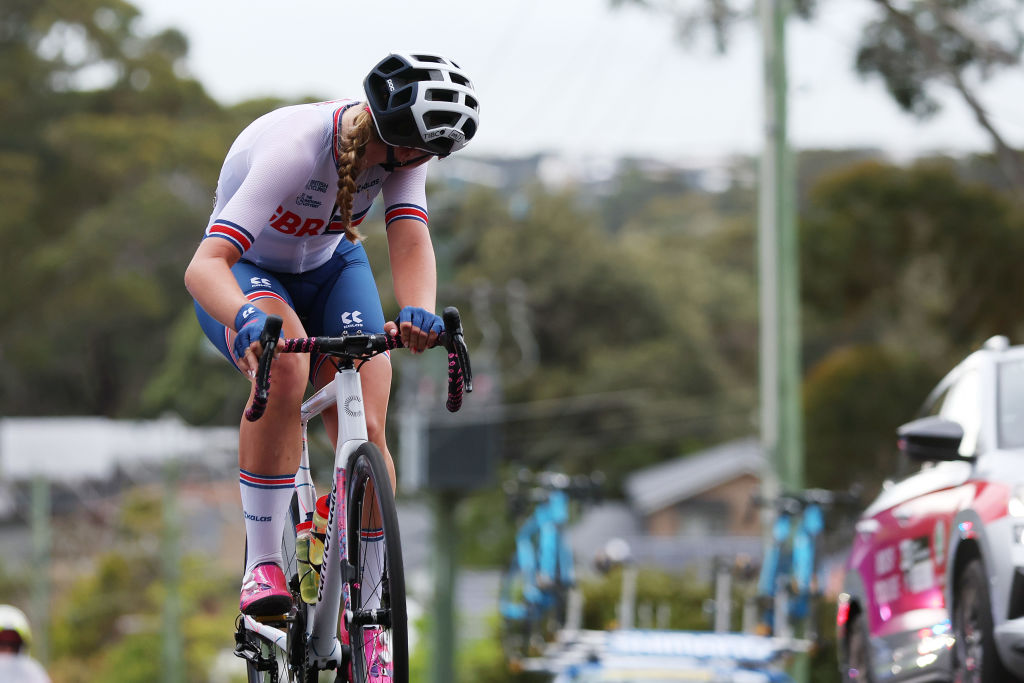
There was one big question running around the course as the crowd lined the barriers for the junior women’s road race, and that was not if, but how soon Zoe Backstedt would launch out the front solo. Last year’s winner had put in such a dominant performance in the time trial that it seemed an inevitability that she’d be out the front at some stage – there were four laps and 67.2km to choose from. Backstedt went on the very first one, taking on a 57km solo effort before taking her second rainbow jersey of the week.
It was enough to leave the television interviewer starting out by asking “did someone tell you that today was not an individual time trial?”
“I mean I did look at the road book but maybe I go the days mixed up,” said Backstedt in an equally tongue-in-cheek fashion
Backstedt, who celebrated her 18th birthday as she once again showed just what a phenomenal talent Great Britain has on its hands, said afterwards that she hadn’t planned to go that early “but the moment was there, so I took it”. For others, it may have been too early, but Backstedt – who now has a cyclo-cross, madison, time trial and road race title – is one of those rare riders for whom the seemingly impossible looks well within reach.
Home nation hits
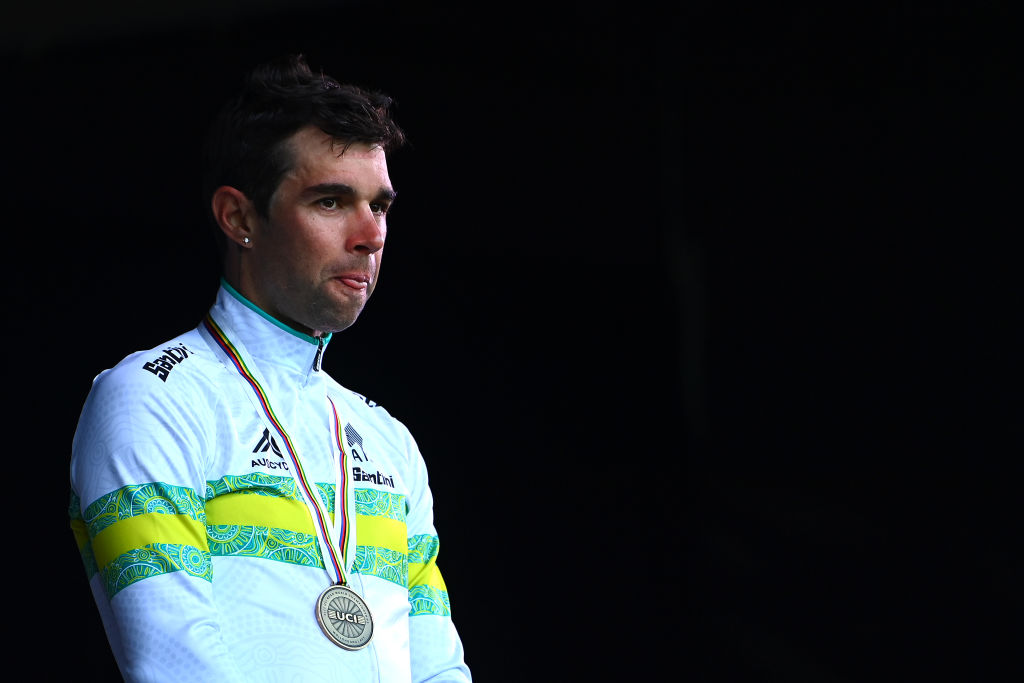
Last year in Flanders it was a story of pressure-filled home nation misses in the elite road races, but even as all hope looked gone in the elite men's road race Michael Matthews delivered another medal hit. Matthews had already delivered that rare and coveted home nation's title back when he took on the U23 road race in Geelong, at the first Road World Championships in Australia.
Come his second appearance on home soil, clad in green and gold, where he was a favourite for the road race. Before that, though, he stepped in beforehand to join the mixed relay team trial - his second ever home World Championship event - and found himself with a bronze medal for the team. Sunday's 266.9km elite men's road race, however, was the one he and the team had been working so hard toward for so long. Could he continue his streak and make it into the medals for a third time.
As Remco Evenepoel charged off solo and multiple chase groups sat between the bunch Matthews was in and the line, it seemed inevitable that the Australian would miss out this time. Hope was gone ... but then it wasn't.
Alexey Lutsenko (KAZ), Lorenzo Rota (ITA), Mauro Schmid (SUI) and Mattias Skjelmose (DEN) started playing games as they eyed the final two spots on the podium and went so slow that they ultimately all missed out. First others chase caught and then they were swamped by the group, with Christophe Laporte sealing second for France and Matthews bronze for Australia. A last-minute reprieve and Matthews made his podium record at home worlds three for three.
Finely balanced route made for fine week of racing
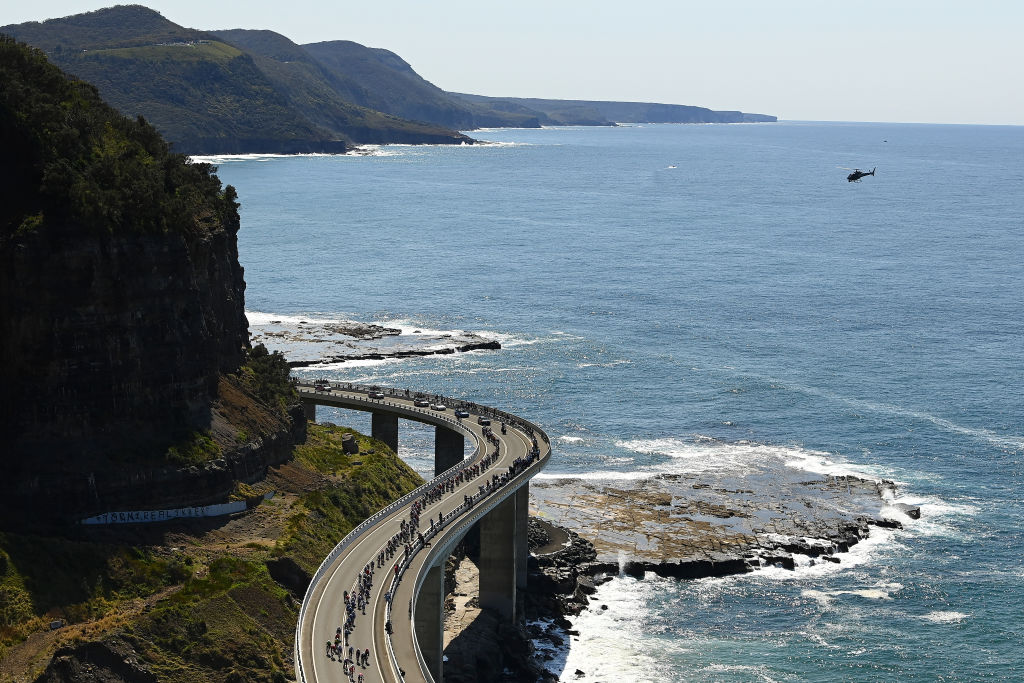
When Wollongong was first announced as World Championships host in 2018, the expectation was that the course would be tailored to deliver a sprint, with local Caleb Ewan an obvious contender for the rainbow. By the time the route was formally unveiled last December, however, it was clear that the organising committee had a different vision for the circuit, a decision that would ultimately see Ewan left on the sidelines.
The route of the women’s and men’s elite races each followed a similar template in Wollongong, with a start in Helensburgh and the loop over Mount Keira serving as a preamble to the sinuous, 17.1km finishing circuit, where the short but deceptively steep haul up Mount Pleasant served as the centrepiece.
On more demanding circuits – Innsbruck in 2018 or Imola in 2020 – the Worlds establishes itself from the outset as a race of attrition before the denouement on the final climb, while easier Worlds courses have sometimes lent the occasion a sense of anti-climax. This circuit’s great selling point is that it was difficult enough to force a selection but not so demanding as to deter attackers, while the multiple springboards on offer meant that every race – from junior to elite level – told its own story.
Zoe Bäckstedt’s quality is such that she would have won the junior women’s title by a country mile on any imaginable terrain, but the junior men’s race concluded with a gripping sprint, while the under-23 men’s race saw Yevgeniy Fedorov fend off a breathless chase. Annemiek van Vleuten’s late, late show in the elite women’s race provided perhaps the highest drama of the week, and while Remco Evenepoel’s ultimately turned the elite men’s Worlds into a procession, the development of that race was anything but predictable.
The finely balanced course was open to a variety of interpretations. Riders and teams who chose to wait for the approach of the bell lap paid a heavy price for their caution. At Wollongong, as has so often been the case over the past two seasons, fortune favoured the bold.
Radio silence impacts team tactics
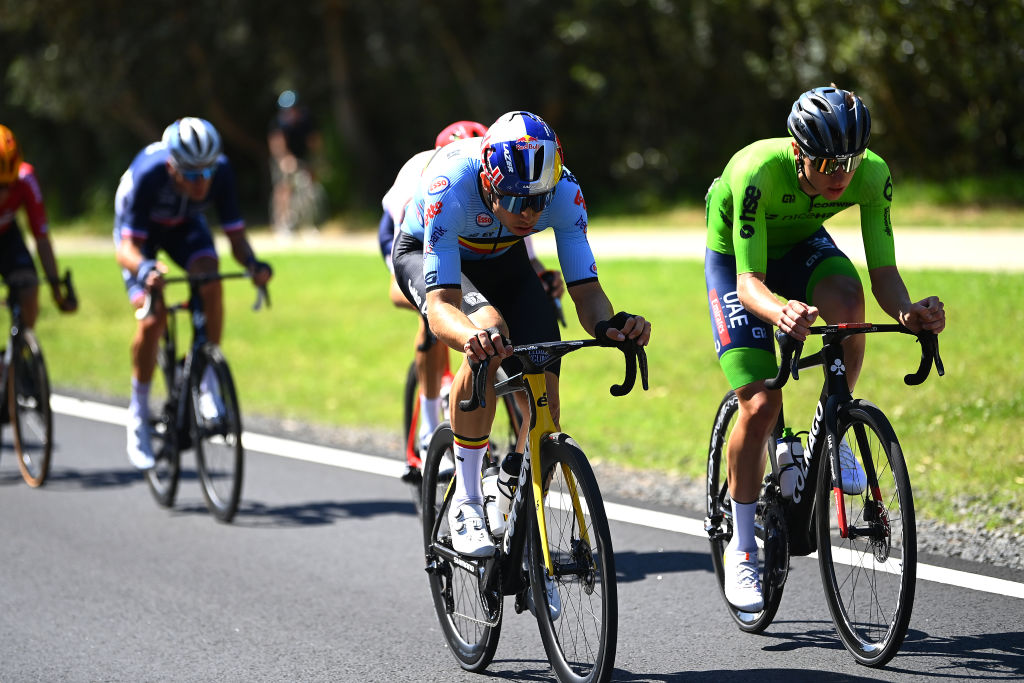
Remco Evenepoel was arguably unbeatable in Sunday’s men’s road race but as riders and teams travelled home from Australia and reflected on the race, they appear to be blaming one thing for their tactical failures: the lack of race radios and so tactical information.
Riders are advised, updated and tactically guided via race radio from their team cars during the rest of the season but the UCI insists that the Olympic Games and the World Championships are raced without race radio. Once a year the riders suddenly have to revert to an old-school style of racing and gather information themselves, from their teammates or roadside blackboards. All while riding for their national teams.
In Australia, the lack of race radios and up-to-date information lead to at least three temporary information blackouts and so bad tactical decisions that arguably changed the outcome of the race.
First, when Remco Evenepoel joined the attack with 75km to go, many of his rivals didn’t notice he was there and so let the move go clear. That would probably not have happened if the team cars could see the race on television and informed their riders immediately of the danger.
Then France, despite not having a real team leader in the move, decided to drive the break along for a lap, massively helping Belgium, until roadside orders told them to stop and sit on Evenepoel. By then the attack was close to 2:00 clear and Evenepoel soon realised he had a chance to launch a winning solo attack. The fight for the rainbow jersey was over before it had really begun.
Incredibly, as Evenepoel celebrated his solo win, the chasers who were riding for the medals behind him, allowed the peloton back into the race in the final kilometre by slowing massively as they looked at each other. They claimed they didn’t know the time gap back to the peloton and blew any chance of a medal.
When the peloton caught them, the huge group of big-name riders were also racing in the dark and didn’t know who they had caught and if they were sprinting for second place or 12th place.
“We caught some riders but I didn’t know I was racing for second place,” Christophe Laporte of France admitted, surprised to take the silver medal.
“Without radio it’s a drama. I crossed the finish line in fourth, but I didn’t know if I was sprinting for 10th, 15th, or even second,” Van Aert told Sporza.
“Racing without radios is outdated,” van Aert added. “It’s a pity, because I had the legs to climb onto the podium with Remco.”
The UCI defends their ban on race radio by claiming it creates more open, uncertain racing, with riders deciding their tactics themselves rather than being radio controlled.
In Australia, the racing was certainly more open and less controlled but was influenced by a lack of information. Evenepoel could have still won but race radio would have made for a far different race.
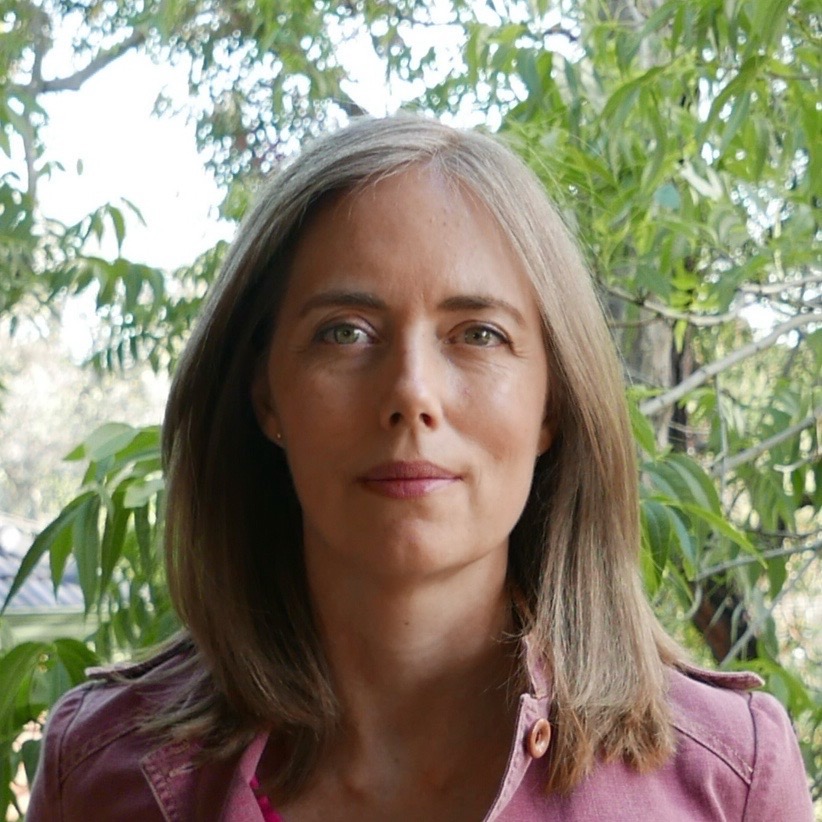
Simone is a degree-qualified journalist that has accumulated decades of wide-ranging experience while working across a variety of leading media organisations. She joined Cyclingnews as a Production Editor at the start of the 2021 season and has now moved into the role of Australia Editor. Previously she worked as a freelance writer, Australian Editor at Ella CyclingTips and as a correspondent for Reuters and Bloomberg. Cycling was initially purely a leisure pursuit for Simone, who started out as a business journalist, but in 2015 her career focus also shifted to the sport.